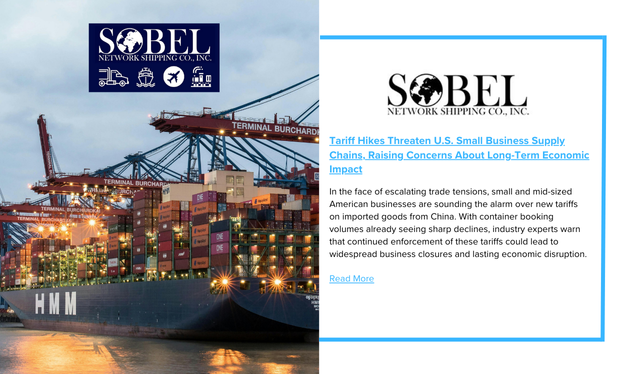In the face of escalating trade tensions, small and mid-sized American businesses are sounding the alarm over new tariffs on imported goods from China. With container booking volumes already seeing sharp declines, industry experts warn that continued enforcement of these tariffs could lead to widespread business closures and lasting economic disruption.
Data from freight booking platforms indicate that ocean shipments from China have decreased by 20–50% compared to the previous year, a stark indicator of strained supply chain activity. Many U.S. businesses rely heavily on Chinese manufacturing for production, and alternative sourcing locations such as Vietnam are often unavailable to smaller firms due to their preference for larger orders from corporate clients.
This presents a significant logistical bottleneck. Without access to affordable production alternatives, small businesses face soaring costs, reduced margins, and difficulty fulfilling orders. The concern is not only operational—there are financial ramifications, too. Many of these companies operate with slim reserves, reinvesting profits into growth or marketing. Any supply chain interruption can halt cash flow and trigger long-term consequences.
Experts warn that if these trends continue, billions in economic activity could be lost. Considering that U.S. imports from China generate an estimated $2 trillion in retail sales annually, even partial disruptions could deeply affect the domestic economy.
Additionally, there are growing fears that failing American brands may be acquired by overseas manufacturers. Such acquisitions would give foreign producers control over both manufacturing and customer-facing sales—a shift that could permanently change the dynamics of global commerce and weaken American innovation.
Trade analysts suggest that a policy reversal may be inevitable, particularly if economic indicators worsen. The long-term sustainability of American small businesses depends on navigating the complexities of international sourcing while adapting to a protectionist trade environment.
As the situation evolves, businesses and supply chain professionals are urged to stay informed and flexible, preparing for both short-term volatility and long-term restructuring within the global logistics landscape.


